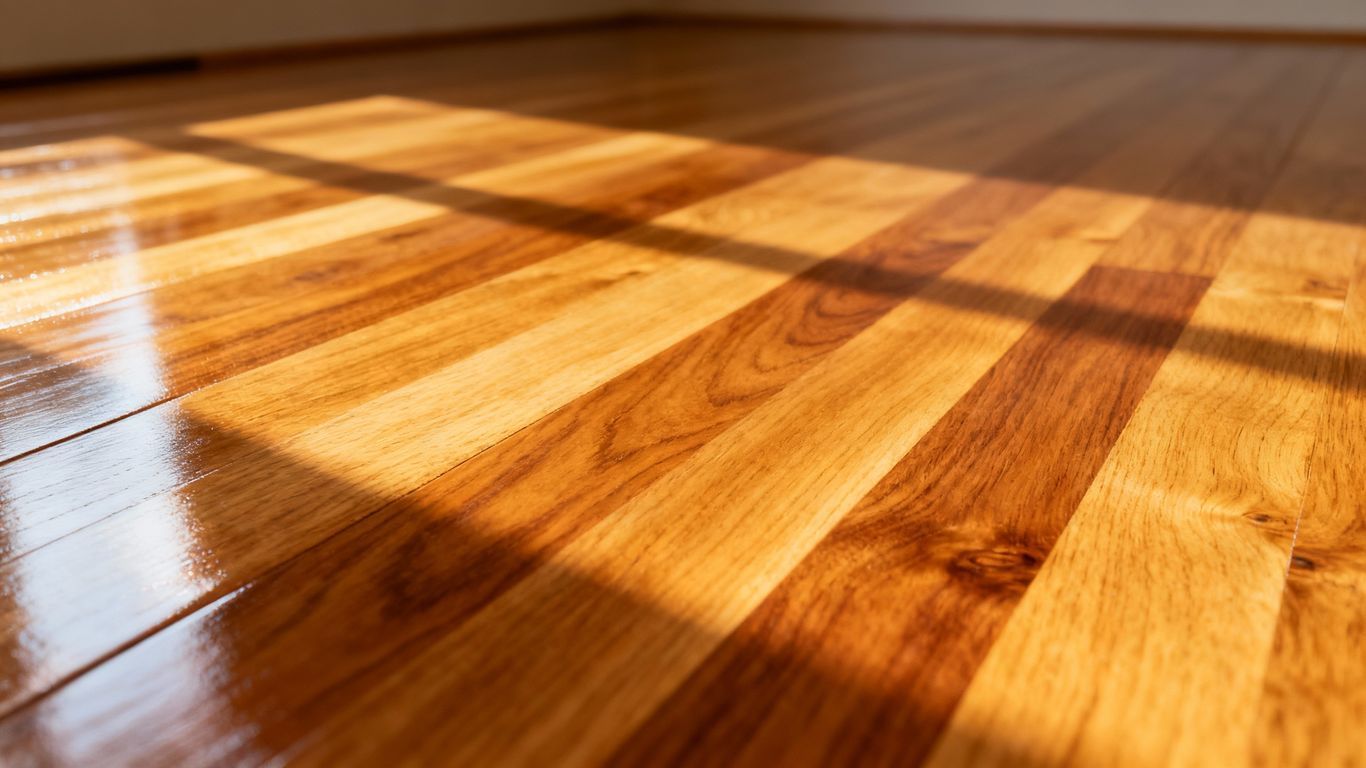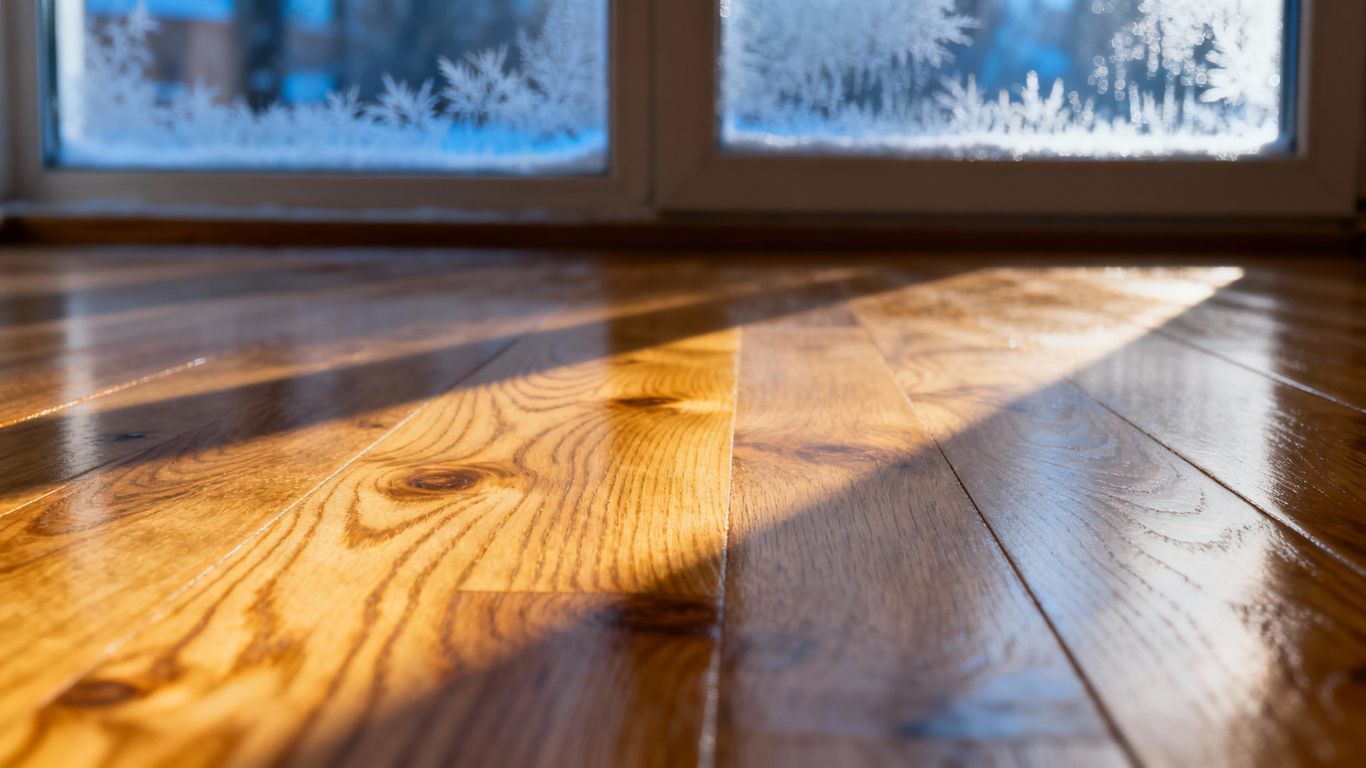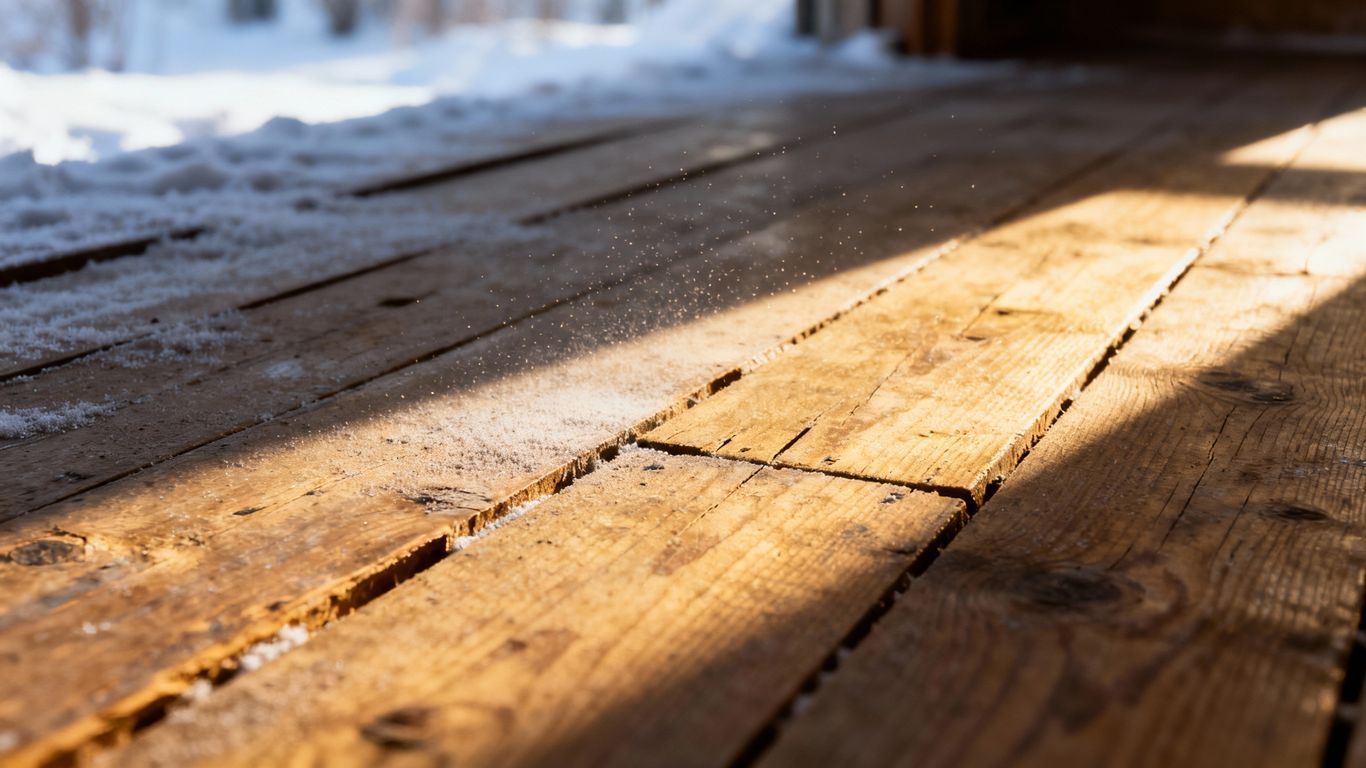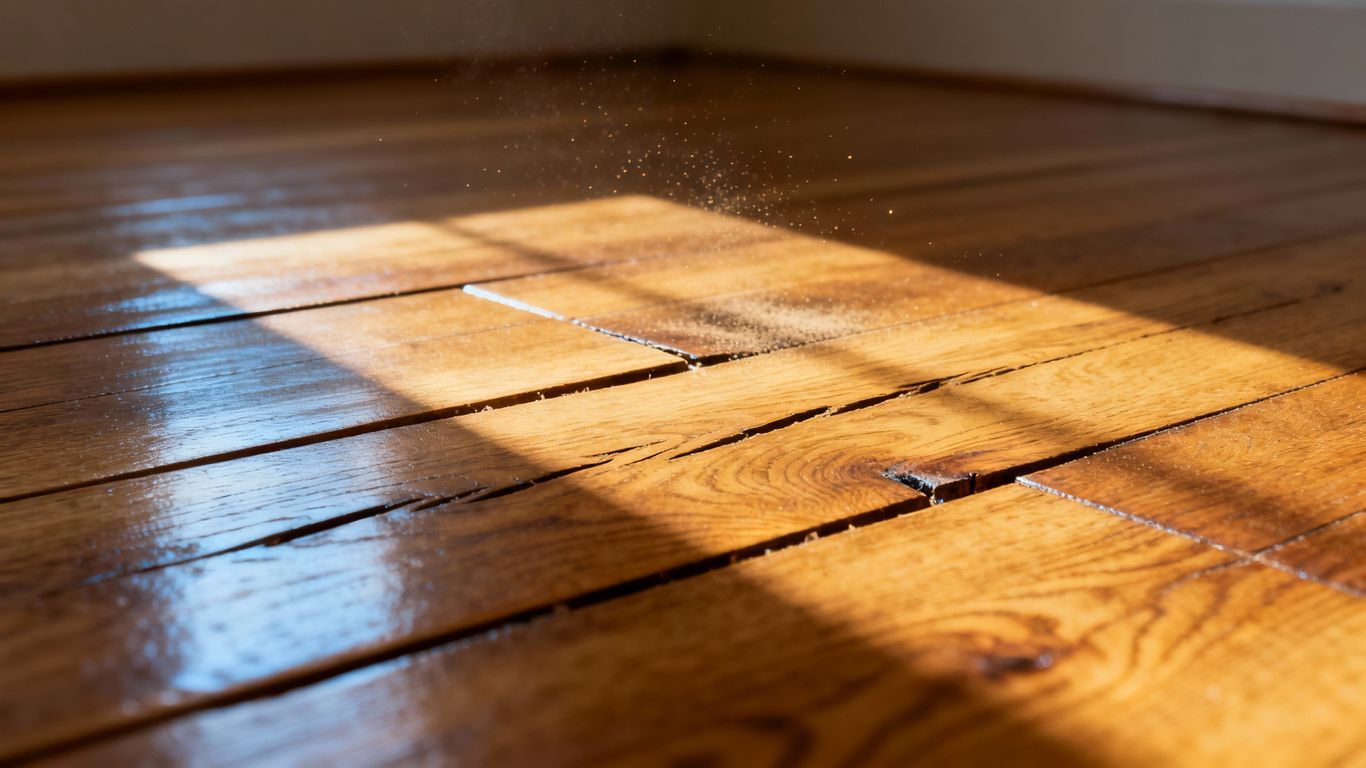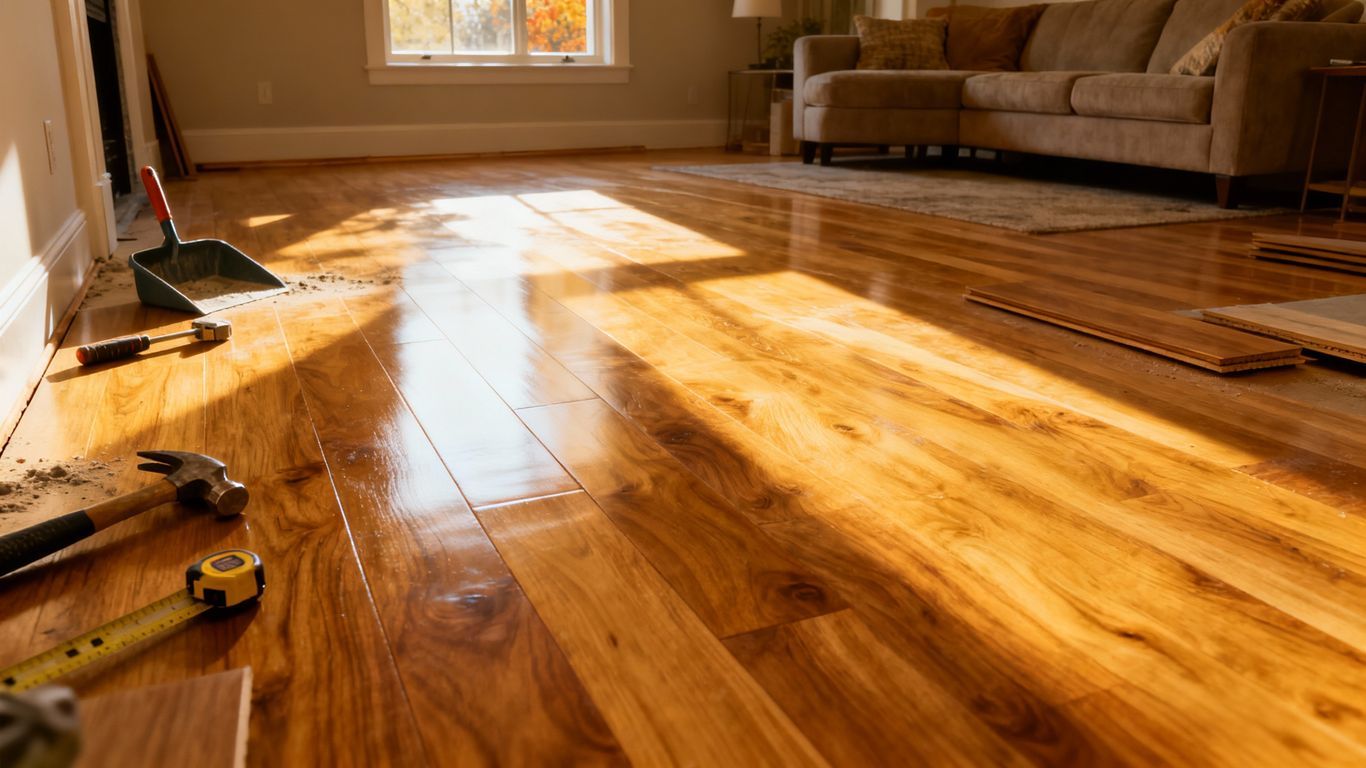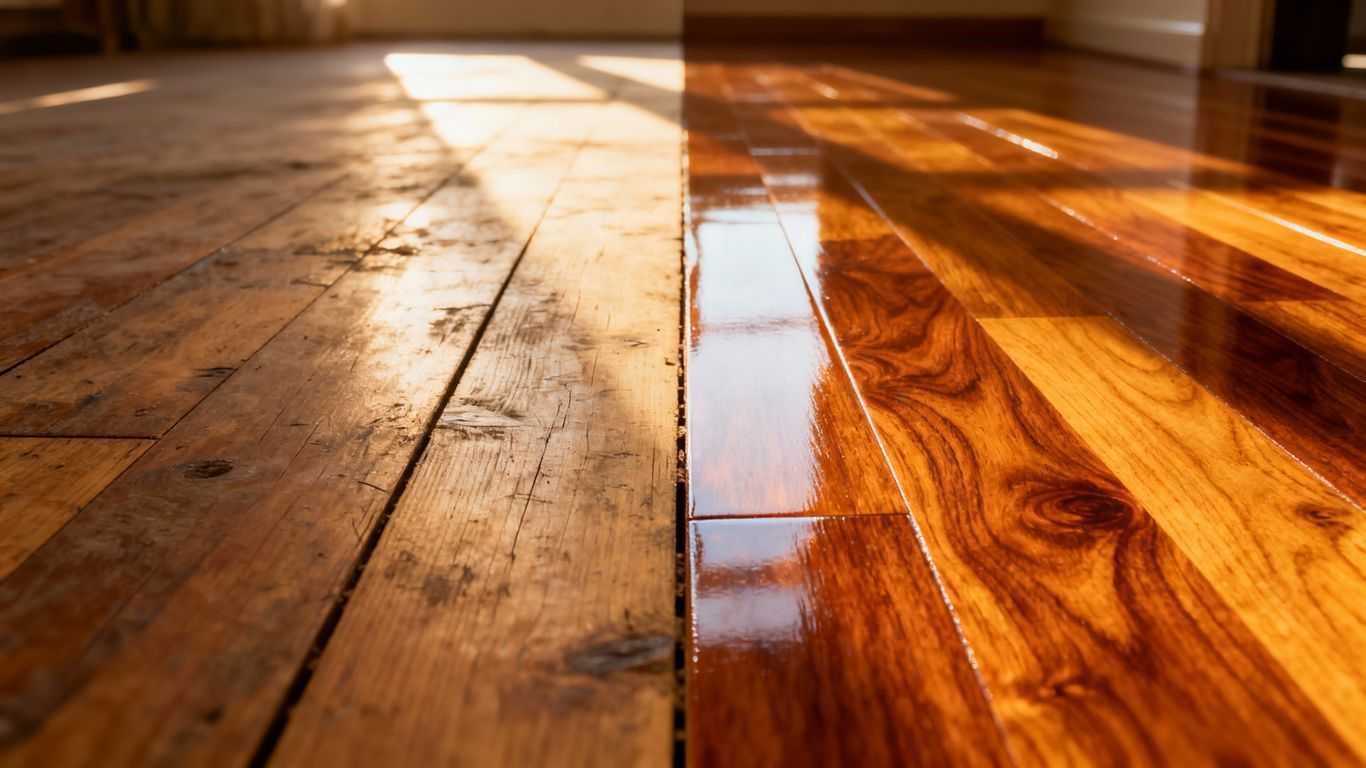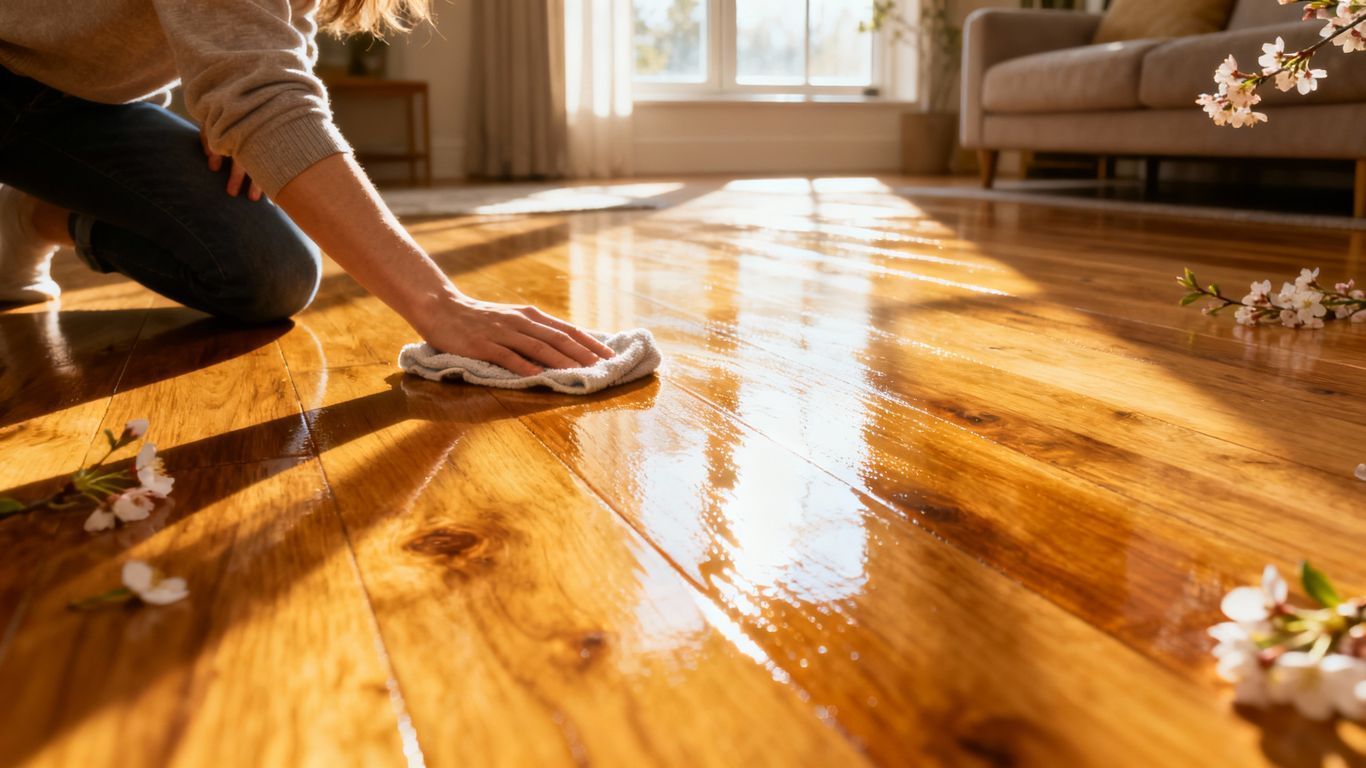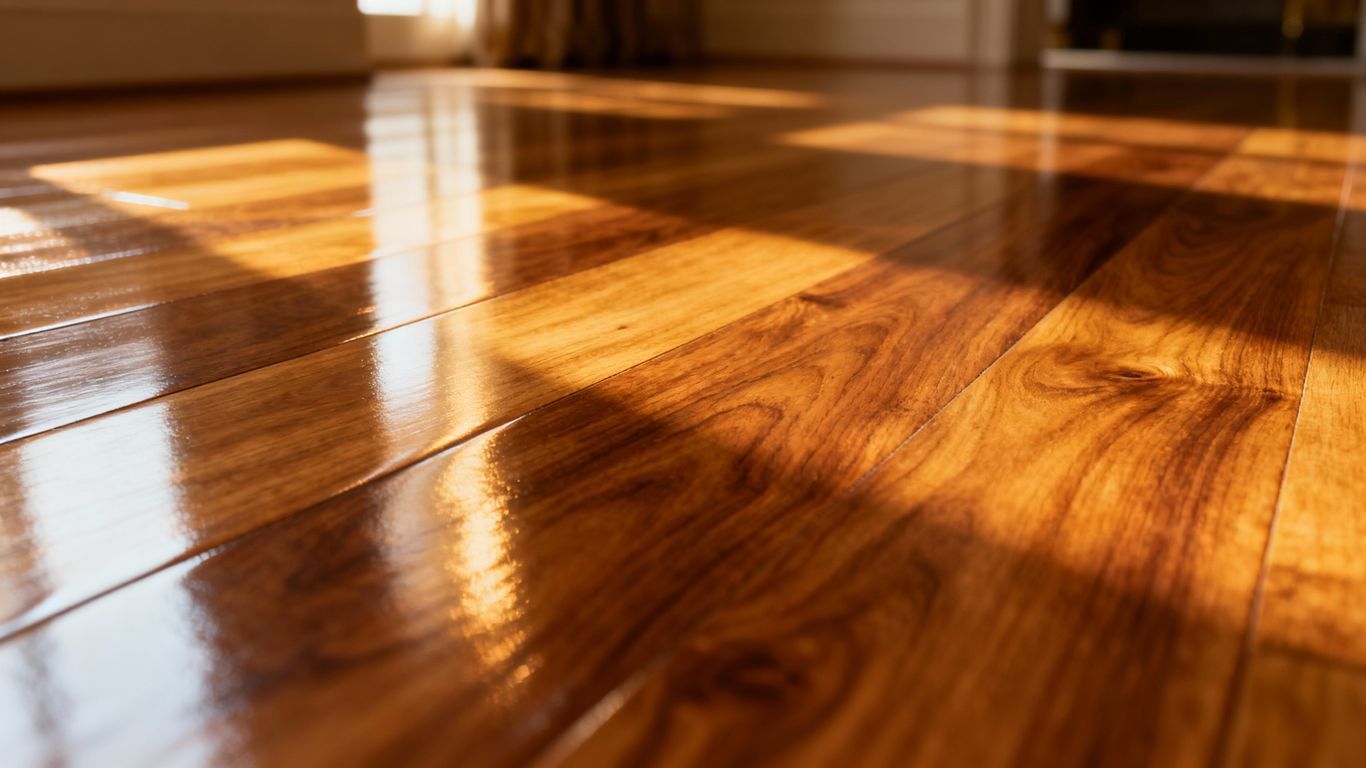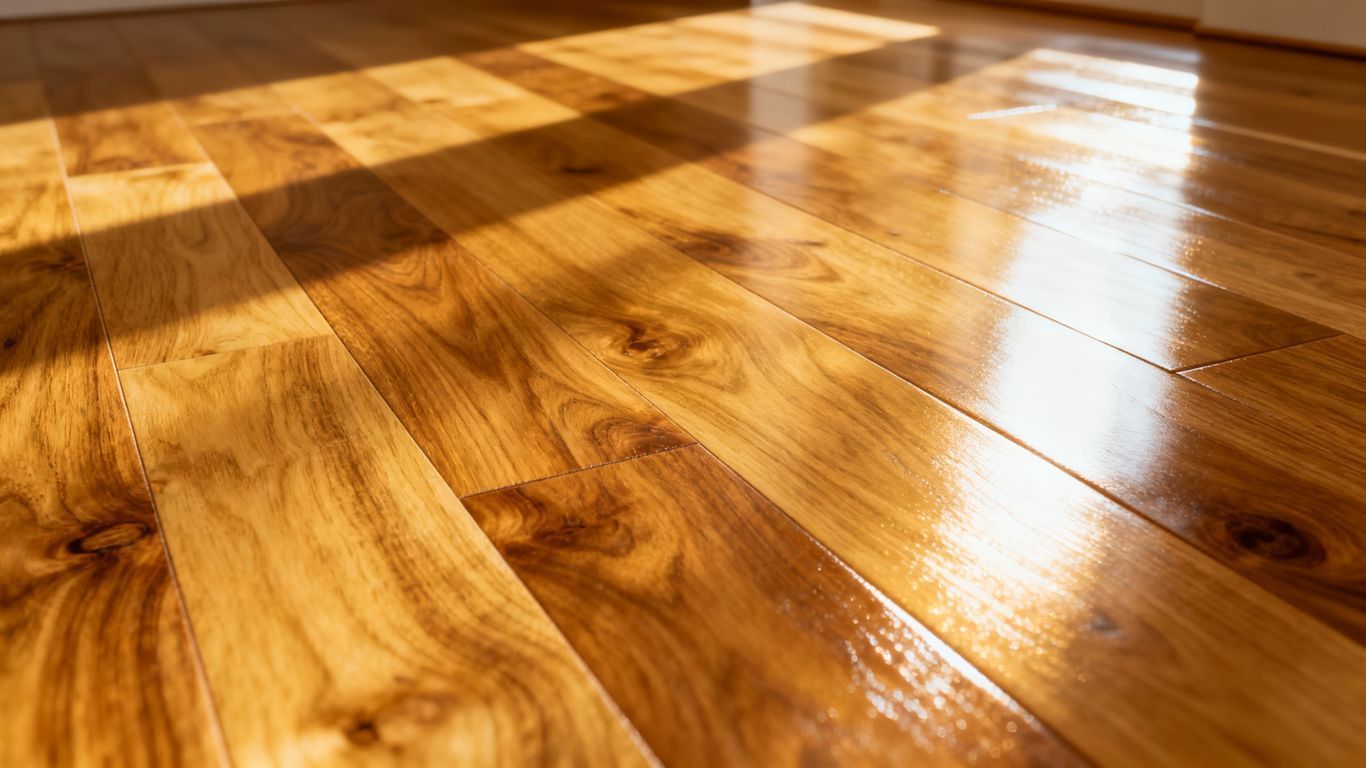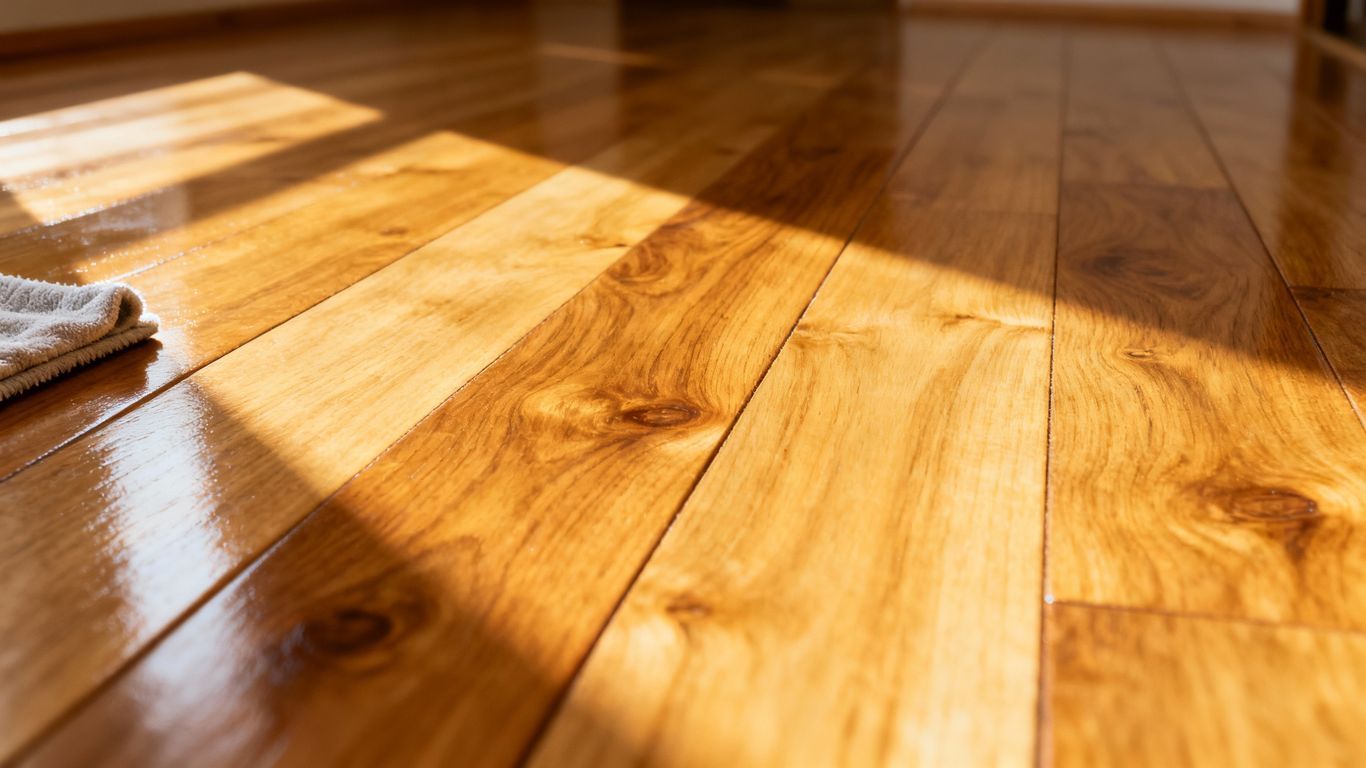10 Questions to Ask Your Flooring Contractor in Chattanooga, TN or North GA
Looking to update your floors in Chattanooga? Picking the right flooring contractor is a big deal. You want someone reliable and good at their job. Asking the right questions upfront can save you a lot of headaches down the road. This list will help you find a solid flooring contractor Chattanooga pros trust.
Key Takeaways
- Always check a flooring contractor's experience and if they specialize in the type of flooring you want.
- Verify their license and insurance are current to protect yourself.
- Ask for references and look at their past work to gauge quality.
- Get a clear project timeline and understand who will be doing the work.
- Confirm payment terms and what warranties or guarantees are included.
1. Experience and Specialization
When you're looking to get new floors installed, it's a good idea to ask your contractor about their background. You want to know how long they've been doing this kind of work, especially in the Chattanooga area or North Georgia. Some companies focus on specific types of flooring, like hardwood or tile, while others do a bit of everything. It's best to find someone who has a good amount of experience with the type of flooring you're interested in.
Here are a few things to consider asking:
- What types of flooring do you specialize in? (e.g., carpet, hardwood, vinyl, tile, laminate)
- How long has your company been in business?
- Do you have experience with projects similar to mine?
It’s also helpful to understand their approach to different flooring materials. For instance, installing hardwood requires a different skill set than laying down large format tiles. Asking about their specific training or certifications related to certain materials can give you a clearer picture of their capabilities. You might even want to ask if they have a showroom or examples of their past work you can see. Checking out a place like Chattanooga Flooring Center can give you a feel for the quality of work and the range of products available.
Sometimes, a contractor might be great at installing carpet but less experienced with intricate tile patterns. Knowing this upfront can save you a lot of headaches down the road. You want to be sure they can handle the job you have in mind, from start to finish.
2. Licensing and Insurance
When you're getting quotes for new flooring, it's really important to ask about the contractor's licensing and insurance. This isn't just busywork; it's about protecting yourself and your home. A properly licensed and insured contractor means they're serious about their business and have met state requirements.
Licensing Requirements
Different states and even local areas have their own rules about who needs a license to do flooring work. You'll want to confirm that your contractor has the necessary licenses for both Tennessee and North Georgia, depending on where your project is located. This often involves passing tests and showing some level of experience. You can usually check this with your local building department or state licensing board. For instance, understanding business taxes in Tennessee might be relevant if you're looking into the contractor's business setup Business Tax Act of 1971.
Insurance Coverage
Beyond licensing, make sure they carry adequate insurance. This typically includes:
- General Liability Insurance: This covers accidental damage to your property or injury to someone else that might happen during the job.
- Workers' Compensation Insurance: If their crew gets hurt on your property, this insurance covers their medical bills and lost wages. Without it, you could be held responsible.
Verifying Credentials
Don't just take their word for it. Ask for proof of both their license and insurance. They should be able to provide you with copies of their current insurance certificates and license numbers. It's a good idea to call the insurance company directly to confirm the policy is active and covers the type of work they'll be doing. This step really helps avoid headaches down the road.
It might seem like a lot of checking, but it's a small price to pay for peace of mind. You want someone who's professional and has your back if something unexpected pops up.
3. References and Portfolio
Past Projects and Client Feedback
When you're looking for a flooring contractor, seeing what they've done before is a big deal. It gives you a real idea of their skill and what you can expect. Don't be shy about asking for references from recent jobs. A good contractor will be happy to share names and numbers of past clients. Give those people a call! Ask them about their experience, how the project went, and if they were happy with the final result. It’s also smart to ask about the contractor’s communication during the job and if they stayed on schedule.
Visual Proof of Work
Beyond just talking to people, you want to see the actual work. Ask if the contractor has a portfolio or photos of their completed projects. This is where you can really see the quality of their craftsmanship. Look for:
- Different types of flooring they've installed (hardwood, tile, carpet, vinyl, etc.).
- The complexity of the jobs – were they simple installs or more involved projects?
- The overall finish and attention to detail.
Seeing examples of their work can tell you a lot about their style and capabilities. If they specialize in a certain type of flooring, like custom hardwood installations, their portfolio should reflect that. You can often find examples of their work on their website or social media pages, too. For general contracting services in the Tennessee Valley, companies like Lowder & Lowder Construction often showcase their completed projects.
It's not just about pretty pictures; it's about understanding the contractor's ability to handle your specific flooring needs and deliver a result you'll love for years to come. A solid portfolio and good references are your best tools for making an informed decision.
4. Project Timeline and Schedule
When you're getting new floors, knowing how long the whole thing will take is a big deal. You don't want your house turned upside down for longer than necessary, right? Asking about the project timeline helps you plan your life around the work. It's important to get a clear picture of the start date, estimated completion date, and any potential delays.
What's the estimated start date?
How long will the installation process take?
Are there specific days or times the crew will be working?
What happens if there are unexpected delays?
It’s good to understand the flow of the project. For instance, will they need to remove old flooring first? How long does that usually take? Then there's the actual installation of the new material. Different types of flooring have different installation times. For example, laying down carpet is usually quicker than installing intricate tile work. Knowing these steps helps manage expectations. You can ask about the typical duration for each phase of the job. This helps you prepare for the disruption, even if it's a minor one. Getting a realistic schedule from your contractor is key to a smooth experience, and you can find contractors who are ready to discuss your project at Beaver Carpets.
Understanding the schedule also means knowing if the materials will be on-site before work begins. If they have to wait for materials, that adds time. A good contractor will have this sorted out in advance.
5. Material Selection and Sourcing
When you're picking out new floors, the materials are a big deal, right? You want something that looks good, lasts a long time, and fits your budget. Asking your contractor about their material selection and sourcing process is super important. They should be able to guide you through all the options available, from hardwood and tile to carpet and vinyl.
What types of flooring do you typically work with?
It's good to know if they specialize in certain types of flooring or if they handle a wide variety. Some contractors might be experts in luxury vinyl plank, while others focus more on natural stone. Understanding their experience helps you know if they're the right fit for your specific project.
Can you provide samples or direct me to a showroom?
Seeing and touching the actual flooring materials makes a huge difference. A good contractor will either have samples they can bring to your home or can point you to a local showroom, like the Chattanooga Flooring Center, where you can see everything firsthand. This lets you get a real feel for the color, texture, and quality.
Where do you source your materials from?
Knowing where your materials come from can tell you a lot about quality and reliability. Are they getting them from local suppliers, national distributors, or directly from manufacturers? This can also affect pricing and delivery times.
What are the pros and cons of the materials you're recommending for my project?
Your contractor should be able to explain why they suggest certain materials over others for your specific needs. They should talk about things like:
- Durability and wear resistance
- Maintenance requirements
- Moisture resistance
- Cost and value
- Aesthetic appeal
Don't just go with the first thing they suggest. Ask questions. Make sure you understand why a particular material is a good choice for your home and lifestyle. It’s your floor, after all, and you should be happy with it for years to come.
How do you handle material shortages or backorders?
Sometimes, the exact flooring you want might be out of stock or delayed. It’s wise to ask how your contractor manages these situations. Do they have backup options? How will they keep you informed if there are delays? Planning for these possibilities can save a lot of stress down the road.
6. Subcontractors and Labor
When you hire a flooring contractor, it's good to know who's actually going to be doing the work in your home. Sometimes, the main company you talk to doesn't do all the installation themselves. They might bring in other folks to help out, especially for bigger jobs or if they need specialized skills.
Will you use subcontractors?
It’s important to ask if they plan on using any subcontractors for your project. If they do, you'll want to know a bit more about them. Are these subcontractors vetted and experienced in the type of flooring you're installing? Knowing this can give you peace of mind.
What is their experience level?
Beyond just using subcontractors, ask about the general experience level of the crew that will be working on your floors. Are they seasoned professionals, or are they newer to the trade? You want people who know what they're doing, especially with tricky materials or complex layouts. It’s not just about having enough hands; it’s about having the right hands.
How are your installers trained?
Some companies invest in ongoing training for their teams, which is a good sign. This could include training on new installation techniques, product knowledge, or safety procedures. Ask if their installers have received any specific training related to your chosen flooring material. This can make a big difference in the final look and durability of your new floors.
Understanding who is performing the labor and their qualifications is just as important as the materials you choose. A skilled installer can make even a standard material look amazing, while an inexperienced one can cause problems down the line, no matter how good the product is.
If the contractor uses outside help, you might want to ask if they have a list of trusted, local installers they often work with. Finding good help can be tough, and many companies have a network of reliable subcontractor flooring installers in Tennessee they rely on.
7. Warranty and Guarantees
When you're investing in new floors, you want to know that the work is backed up. It’s not just about the look today, but how it holds up over time. Ask specifically about what warranties are provided, both for the installation labor and the materials themselves. Different types of flooring have different lifespans and potential issues, so understanding the coverage is key.
Labor Warranty
This covers the actual installation work. What happens if a seam starts to lift, or a tile loosens? A good contractor will stand behind their workmanship. Find out how long this warranty lasts and what it specifically covers. Some might offer a year, others longer. It’s good to know that if something goes wrong due to how it was installed, they’ll come back and fix it.
Material Warranty
This comes from the manufacturer of the flooring product. It usually covers defects in the material itself, like premature wear or manufacturing flaws. The terms can vary wildly depending on the type of flooring – hardwood, carpet, vinyl, tile, etc. Make sure you understand what the manufacturer's warranty entails and if the contractor helps you with any claims.
What's Typically Excluded?
It’s also important to know what isn't covered. Most warranties won't protect against:
- Damage from accidents (like dropping heavy objects)
- Improper cleaning or maintenance
- Water damage from floods or leaks
- Normal wear and tear, like fading over many years
Always get the warranty details in writing. Verbal promises can get lost or misunderstood. A clear, written document protects both you and the contractor, setting expectations upfront for the durability of your new floors.
Understanding these guarantees gives you peace of mind. It shows the contractor is confident in their abilities and the products they use. You can often find installation services that include a one-year labor warranty, which is a good starting point for discussion professional flooring installation.
8. Payment Schedule and Terms
When it comes to paying for your new floors, it’s important to get the details sorted out upfront. Nobody wants surprises when it comes to money. You should ask about how the payments are structured. Most contractors will want a deposit to get started, which is pretty standard. This usually covers initial material costs and helps secure your spot on their schedule.
Here’s what you should clarify:
- Deposit amount: How much is needed to begin the work?
- Milestone payments: Are there payments due at certain stages of the project, like after the old floor is removed or after the new material is laid?
- Final payment: When is the remaining balance due? Typically, this is after the job is completed to your satisfaction.
It’s also a good idea to understand what payment methods they accept. Some might prefer checks, while others are fine with credit cards, though there might be a fee for that. Make sure you get a clear, written agreement that outlines all these terms before any work begins. This protects both you and the contractor.
Always ask for a written contract that details the payment schedule. This document should clearly state the total cost, the amount of the deposit, any interim payments, and the final payment due date. It’s your best defense against misunderstandings later on.
9. Cleanup and Debris Removal
When the last piece of flooring is laid, what happens to the mess? It's a good question to ask your contractor. You want to know exactly how they handle the leftover materials and dust.
What's the cleanup process?
Ask them to walk you through their typical cleanup routine after a job is finished. Do they just sweep, or do they use specialized equipment for dust control? It's important to understand their methods.
Who removes the old flooring and debris?
If you're replacing old flooring, who is responsible for hauling away the old material? Is it included in the quote, or is it an extra charge? Make sure this is clear from the start.
What about dust and air quality?
Flooring installation can create a lot of dust. Find out what steps they take to minimize dust spread throughout your home. Do they use plastic sheeting or air scrubbers? This can make a big difference in how clean your house stays.
It's easy to forget about the mess when you're focused on the new floors, but a good contractor will have a plan for it. They should treat your home with respect from start to finish, and that includes the cleanup.
Are disposal fees included?
Sometimes, there are fees associated with disposing of construction debris. Confirm whether these costs are part of your estimate or if you'll be billed separately. You don't want any surprises later on.
10. Communication and Point of Contact
When you hire someone to work on your home, you want to know who you can talk to if something comes up. It’s not just about getting updates; it’s about having a clear line of communication for any questions or concerns that pop up during the project. Knowing your main point of contact makes the whole process feel much smoother.
Who is my main point of contact?
It’s important to ask who will be your go-to person for the duration of the flooring job. Will it be the owner, a project manager, or a lead installer? Having one person to direct your questions to avoids confusion and makes sure you get consistent answers. This person should be someone you can reach easily.
How will we communicate?
Discuss the best ways to stay in touch. Some people prefer phone calls, others like emails, and some might want text updates. Figure out what works best for both you and the contractor. It’s also good to know their typical response time. You don't want to wait days for an answer about something important.
What is the update schedule?
Ask how often you can expect to hear from them. Will they provide daily summaries, weekly check-ins, or just contact you when there's a significant development? A regular update schedule helps you stay informed and feel involved in the project. For example, you might want to know about progress at the end of each week, especially if you're having hardwood floors installed.
Keeping the lines of communication open is key to a successful project. It helps manage expectations and resolve any issues that might arise before they become bigger problems. A good contractor will welcome your questions and make it easy for you to get the information you need.
What if there are unexpected issues?
It’s wise to discuss how the contractor handles problems. What’s their process if they discover something unexpected, like subfloor damage or a delay in material delivery? Knowing their plan for dealing with hiccups gives you peace of mind. They should be upfront about potential challenges and how they plan to overcome them.
Have questions or need to chat about your flooring project? We're here to help! Reach out to us easily. For all your hardwood flooring needs, visit our website today to get started.
Wrapping Up Your Flooring Project
So, you've got your list of questions ready. Asking the right things upfront can really make a difference when you're getting new floors put in, whether you're in Chattanooga or up in North Georgia. It helps you get a clear picture of what to expect, from the materials to the timeline and the final cost. Picking a good contractor is a big step, and being prepared means you can feel more confident about the whole process. Good luck with your new floors!
Frequently Asked Questions
How much experience do you have with flooring projects?
It's smart to ask how long they've been doing this job, especially in areas like Chattanooga or North Georgia. Also, find out if they focus on specific types of flooring, like hardwood or tile, or if they do it all. Knowing this helps make sure they're a good fit for what you need.
Are you licensed and insured for work in this area?
You'll want to check if they have the right papers, like a license, to work in Tennessee or Georgia. It's also super important they have insurance, like liability and worker's comp. This protects you if something goes wrong during the job.
Can you provide references or show me examples of your previous work?
Ask for names of people they've worked with before, and if they have pictures of jobs they've finished. Seeing their past work and hearing from happy customers is a great way to tell if they do good work.
What's the estimated timeline for my flooring project?
Get a clear idea of how long the whole project will take, from start to finish. Ask about their daily schedule, like when they usually start and stop. This helps you plan around the work being done in your home.
Where do you source your flooring materials, and can you help with selection?
Talk about the kinds of flooring materials you're interested in. Ask where they get their materials from and if they can help you pick the best ones for your budget and style. Sometimes they have special deals or can get materials faster.
Will you be using any subcontractors, and if so, are they qualified?
Find out if they use other workers, called subcontractors, to help with the job. If they do, ask who these people are and if they're also properly trained and insured. It's good to know everyone working in your house is qualified.
